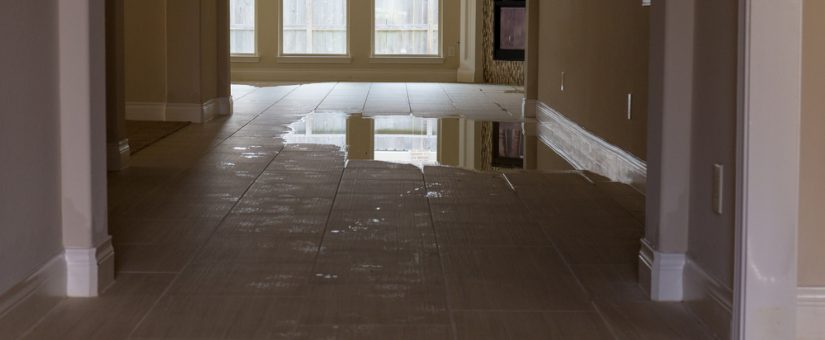The House's Most Common Triggers of Leakage: In-Depth Analysis
The House's Most Common Triggers of Leakage: In-Depth Analysis
Blog Article
They are making several great observations on the subject of How to detect water leaks in your home overall in this post below.

Leaks not just trigger waste of water but can likewise create unneeded damages to your house and promote unwanted organic development. Water leaks might go undetected because many of the pipework in our home is concealed. By looking and also recognizing for everyday scenarios that create leakages, you can secure your house from future leaks and also unneeded damages. Today, we will check out six leak creates that might be triggering your pipelines to leak.
Intruding roots
A lot of water leakages begin outside your house as opposed to inside it. If you see an unexpected decline in water stress, say in your tap, take time to head out as well as analyze your lawn. You could see damp patches or sinkholes in your lawn, which may imply that tree roots are getting into water lines causing water to permeate out. You can have your plumber look for breach, particularly if you have trees or hedges near your property.
Rusty water systems
This could be the cause of discoloration or bending on your water pipes. If our plumbing system is old, consider replacing the pipes considering that they are at a higher risk of deterioration than the more recent models.
Malfunctioning Pipe Joints
Pipeline joints can wear away over time, resulting in water leakages. If you have loud pipes that make ticking or banging noises, particularly when the hot water is turned on, your pipeline joints are possibly under a great deal of stress.
Immediate temperature level adjustments.
Severe temperature modifications in our pipes can create them to expand and also get unexpectedly. This growth and contraction might create fractures in the pipes, specifically if the temperature level are below freezing. It would certainly be best if you kept an eye on how your plumbing works. The existence of the previously discussed circumstances often shows a high danger.
Poor Water Connectors
Sometimes, a leak can be caused by loosened pipes and also pipes that provide your devices. Generally, shifting is what causes the loose water Connections. You may find when it comes to a cleaning machine, a hose may spring a leak as a result of trembling during the spin cycle. In case of a water connections leak, you might discover water running straight from the supply line or pools around your home appliances.
Blocked Drains
Blocked drains could be frustrating and inconveniencing, yet they can in some cases end up triggering an overflow causing break pipes. Keep getting rid of any kind of products that may decrease your drains that might block them to avoid such inconveniences.
All the above are sources of leakages but not all water leakages result from plumbing leaks; some leakages could originate from roofing system leaks. All leakages should be repaired quickly to stay clear of water damage.
Leakages not just trigger waste of water but can also create unnecessary damage to your residence and promote unwanted natural development. By recognizing and also looking for day-to-day circumstances that trigger leaks, you can protect your residence from future leaks as well as unneeded damages. Today, we will certainly look at 6 leak creates that may be creating your pipelines to drip.
At times, a leak can be created by loose hose pipes and pipes that supply your devices. In case of a water links leak, you may notice water running directly from the supply line or pools around your devices.
How To Check For Water Leak In Your Home
How To Check for Leaks
The average household's leaks can account for nearly 10,000 gallons of water wasted every year and ten percent of homes have leaks that waste 90 gallons or more per day. Common types of leaks found in the home are worn toilet flappers, dripping faucets, and other leaking valves. These types of leaks are often easy to fix, requiring only a few tools and hardware that can pay for themselves in water savings. Fixing easily corrected household water leaks can save homeowners about 10 percent on their water bills.
To check for leaks in your home, you first need to determine whether you're wasting water and then identify the source of the leak. Here are some tips for finding leaks:
Take a look at your water usage during a colder month, such as January or February. If a family of four exceeds 12,000 gallons per month, there are serious leaks.
Check your water meter before and after a two-hour period when no water is being used. If the meter changes at all, you probably have a leak.
Identify toilet leaks by placing a drop of food coloring in the toilet tank. If any color shows up in the bowl after 10 minutes, you have a leak. (Be sure to flush immediately after the experiment to avoid staining the tank.)
Examine faucet gaskets and pipe fittings for any water on the outside of the pipe to check for surface leaks.
Undetected water leaks can happen without the home or business owner even realizing. If you suspect a water leak, but not able to find the source. It is time to contact a professional water leak detection service, The Leak Doctor.
How To Find a Water Leak In Your Home
https://www.leakdoctor.com/blog/How-To-Check-For-Water-Leak-In-Your-Home_AE197.html

As an enthusiastic person who reads on How Fast Water Damage Can Ruin Your Home, I assumed sharing that article was a great idea. In case you appreciated our blog posting please make sure you remember to share it. I am grateful for your time. Please visit our blog back soon.
Tap leaking? Call us. Report this page